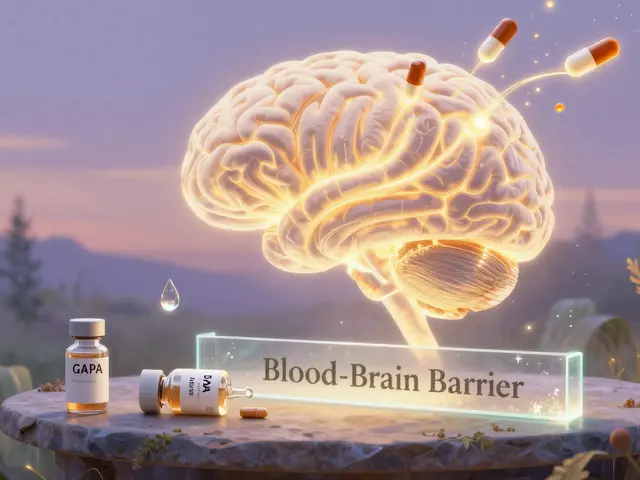Self-reflection for safer medication choices
Ever take a pill and later wonder if you picked the right one or bought it from a safe place? A few minutes of honest self-reflection can save you stress, money, and health risks. This page gives clear, practical steps to review your meds, evaluate online pharmacies, and track side effects so you can act with confidence.
Quick self-check before you order or start a med
Ask yourself these simple questions and write the answers down. Why am I taking this drug? Is it treating symptoms or the root cause? Who prescribed it — a licensed clinician or an online form? If you found the drug on an online pharmacy, does the site require a prescription and show clear contact info and licensing? Articles like "Where and How to Safely Buy Tretinoin Online" and "Buy Diazepam Online Safely" on this site dig into pharmacy red flags and verification steps.
Next, check interactions and side effects. Use a trusted drug-info page or our guides such as "Hydrea Side Effects" and "Floxin Antibiotic: Complete Guide" to learn what to watch for. If a new medicine could interact with something you already take, pause and ask your prescriber. Never mix meds on a hunch.
Think about alternatives. Sometimes a safer or cheaper option exists. Look at comparison pieces like "Meloxicam Alternatives" or "Symbicort Alternatives" to see other choices and trade-offs. Cost matters, but don’t let a lower price push you toward unsafe sellers. Price comparisons like "Is Canadapharmacy.com Actually the Cheapest?" can help you weigh cost vs. credibility.
Track reactions and follow up
After starting a medication, keep a short daily log for the first two weeks. Note the dose, time taken, any new symptoms, and mood or sleep changes. That record makes conversations with your doctor clearer and helps spot patterns early. If you see worrying signs — severe rash, breathing trouble, or symptoms listed in guides like "Hydrea Side Effects" — stop the drug only if your provider tells you to, or get urgent care if it’s an emergency.
If a pharmacy feels off — vague contact info, prices that seem too good to be true, or no prescription requirement — don’t order. Read reviews, check licensing, and compare to known sites. Our post on "The Real Truth Behind medstore-online.pro" shows how to spot scams and what to do if you’ve already ordered from a risky place.
Finally, make a short plan: who to call, when to check in with your doctor, and when to stop or switch meds. Keep copies of prescriptions and receipts. Self-reflection isn’t about overthinking; it’s about pausing long enough to ask the right questions and keep yourself safe. Use the guides on this site for specifics, and when in doubt, talk to a clinician you trust.
The Impact of Atomoxetine on Self-Reflection and Introspection
As a blogger, I've recently delved into the fascinating topic of how Atomoxetine impacts self-reflection and introspection. Atomoxetine, a popular medication for ADHD, has been found to improve our ability to examine our thoughts and emotions. Through its effect on the neurotransmitters in our brain, Atomoxetine has been shown to enhance introspection and self-awareness. This is particularly beneficial for individuals with ADHD who often struggle with self-reflection. Overall, Atomoxetine has the potential to greatly improve the lives of those who take it by fostering deeper connections to their own thoughts and emotions.
Read More




